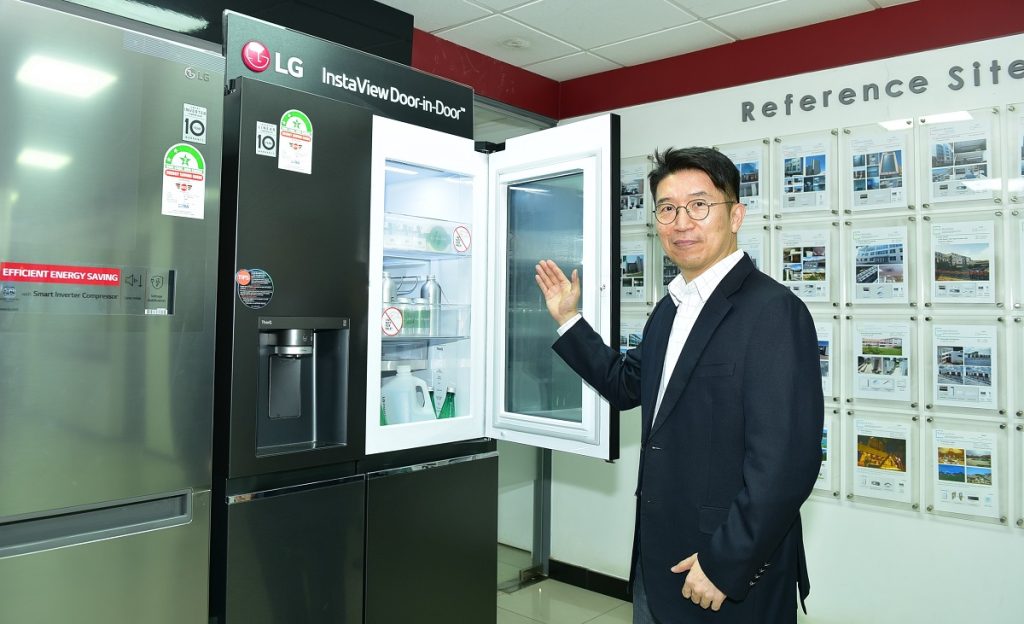By Dong Won Lee
Climate change coupled with the rising cost of energy is driving governments, companies, and individuals to reduce their carbon footprint while also pursuing efficient and environmentally-friendly energy solutions. Energy-efficient homes and buildings are on the rise powered by complex, smart but easily accessible technology such as Artificial Intelligence (AI), Data Analytics, Cloud, and Robotics.
Buildings are a major contributor to climate change reportedly accounting for one-third of global energy consumption and 25 percent of carbon emissions. Heating, Ventilation and Air Conditioning (HVAC) systems alone consume about 40 percent of the energy used in buildings. According to UNEP, building energy demand is at an all-time high hence the need to accelerate the transition to energy-smart buildings as a climate-change mitigation strategy.
An energy-smart building is one that uses technology to enable the efficient use of resources like energy. Also known as intelligent buildings, they are designed, constructed, and equipped with systems to achieve maximum efficiency with minimal environmental impact. Besides improving the quality of life of the occupants, and financial savings, they also contribute to global sustainability goals.
Inbuilt sensors monitoring temperature, humidity and carbon dioxide provide crucial data that helps in regulating energy use among other key building functions. In addition, many consumers are now embracing the smart home concept. This is basically an automated living environment where appliances like televisions, refrigerators, washing machines, smartphones and other devices are fitted with intelligent features and connected through the Internet to share information. This allows them to be perfectly synchronized and remotely controlled using a smartphone.
These are real innovations readily available in the market today. Imagine a building that dims the lights when not in use or due to bright natural light. Since operating conditions in a building keep changing, automation helps in seamlessly regulating energy consumption to suit the needs of the building owner and occupants. For commercial premises, innovative HVAC solutions help in slashing electricity bills thus improving investment returns.
According to the World Green Building Council, smart buildings create a healthier, more productive and comfortable space for employees. Enhanced ventilation and indoor lighting boosts worker productivity and workplace satisfaction. Some studies show that energy-optimized buildings have been cumulatively saving around $18 billion in energy costs globally while eliminating 80 million tons of CO2 emissions each year.
It is also projected that total energy use in residential and commercial buildings will significantly drop by 10 per cent with widespread adoption of smart technologies at current rates. As a company, LG is already leading the way in innovation of energy-efficient smart building appliances and HVAC solutions.
As envisioned under our global sustainability agenda, the LG Better Life Plan 2030, our goal is to create products and services that have a positive impact on people and the Planet. We aim to reduce carbon emissions by twenty per cent in all our seven major product categories through enhanced energy efficiency.
To this end, LG is ramping up investments in AI and core ‘future’ technologies including the AI Energy Management feature that allows users to set energy consumption limits thus reducing overall power usage. LG HVAC solutions embedded with AI software reduce power consumption by operating only at optimal levels to deliver the desired room temperature. Using advanced inverter compressor technology, the air conditioning system is able to reach the set temperature quickly and precisely thus saving energy.
Other innovations include the recently introduced refrigerant solution for buildings that saves up to 25 per cent of energy. Equipped with advanced AI software, the technology provides a smarter, more comfortable indoor environment. This not only saves energy but also delivers ideal conditions for habitability of indoor spaces. It automatically turns on cooling units in occupied rooms and turns off those in unoccupied spaces.
Energy-smart buildings represent the sustainable world we are creating for the future now.
Mr. Lee is the Regional Managing Director for LG East Africa



